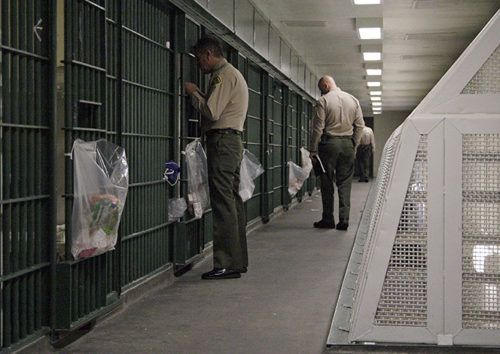Bold criminal justice reforms go nowhere in California Legislature

The 2017 session of the California Legislature may be remembered as when the criminal justice reform movement in America’s largest state lost its momentum.
The movement entered the session with a head of steam after winning majority support from the Legislature and then the public for Proposition 47 in 2014 and for Proposition 57 in 2016. The former measure reclassified dozens of “nonviolent” and “nonserious” offenses from felonies to misdemeanors. The latter made it easier for nonviolent felons to win parole.
This year, the same rationale that civil liberties groups, progressive think tanks and minority organizations offered for Propositions 47 and 57 was invoked in seeking sweeping statewide bail reform and a pilot program allowing drug addicts to inject themselves in safe settings in several cities and counties. That rationale: California’s criminal justice system is not only far too punitive, it focuses too much on punishment and not enough on rehabilitation.
State Sen. Bob Hertzberg, D-Van Nuys, and Assemblyman Rob Bonta, D-Oakland, led the push for putting sharp limits on the state’s money bail system in favor of a system that largely trusted suspects without serious criminal histories to not go on the lam. They argued that California’s highest-in-the-nation bail requirements were unnecessary to get the accused to show up for trial and had the effect of destroying lives of suspects by forcing them to spend months in jail, unable to post 10 percent of their bail and secure a guarantee from a bail bondsman.
The fact that more than half the people in state jails are there not because they had been convicted of crimes but because they can’t post bail resonated not just with those who saw bail laws as unfair but with those who saw the system as wildly expensive.
This prompted optimism from Hertzberg in an interview with the Los Angeles Times before the 2017 session began: “Now you have a whole host of groups on both sides of the aisle looking at the cost and fairness of the system,” he said.
But the high point for the reform push came on May 31, when Hertzberg’s SB10 passed the Senate 26-11. A day later, the Assembly rejected AB42, Bonta’s identical bill, on a 35-37 vote.
Supporters of the measures expressed frustration that the governor waited until late August to offer support – and then only with the proviso that the bills be taken up in 2018, not in the closing days of the 2017 session. But it’s an open question whether Brown could have muscled the measures to passage. While other local and state governments have reported success with bail reform, Maryland’s adoption of no-cash bail reform last year has won wide attention for its troubled start. The Washington Post reported in July that the number of trial no-shows had more than doubled under the new system.
No to ‘government-sanctioned drug dens’
The other proposed reform made similar halting progress before being put aside for possible reconsideration in 2018. AB186 by Susan Talamantes Eggman, D-Stockton, would have established safe areas in a handful of cities and counties for drug users to inject themselves without fear of being charged with crimes, among several provisions. Drug law reformers argued that this would reduce the carnage from the opioid crisis by making it easier to treat overdoses and by getting addicts in touch with health care professionals. The program would lapse in 2022.
But law enforcement groups voiced sweeping objections to the law, saying it would create “government-sanctioned drug dens with no requirement that participants enter treatment,” in the words of a state Senate analysis, among many criticisms.
The bill passed the Assembly on June 1 with 21 votes – the bare minimum for approval – before being rejected by the Senate on Sept. 12 after gaining only 17 of the needed 21 votes.
Chris Reed
Chris Reed is a regular contributor to Cal Watchdog. Reed is an editorial writer for U-T San Diego. Before joining the U-T in July 2005, he was the opinion-page columns editor and wrote the featured weekly Unspin column for The Orange County Register. Reed was on the national board of the Association of Opinion Page Editors from 2003-2005. From 2000 to 2005, Reed made more than 100 appearances as a featured news analyst on Los Angeles-area National Public Radio affiliate KPCC-FM. From 1990 to 1998, Reed was an editor, metro columnist and film critic at the Inland Valley Daily Bulletin in Ontario. Reed has a political science degree from the University of Hawaii (Hilo campus), where he edited the student newspaper, the Vulcan News, his senior year. He is on Twitter: @chrisreed99.
Related Articles
Tragedy could boost Newsom’s gun-control push
The slaughter of 14 people at a San Bernardino conference center Wednesday morning by two heavily armed Islamic extremists could
State peddles idea that bullet train contractors are investors
On Jan. 11, 2010, the Legislative Analyst’s Office issued a report on the latest iteration of the business plan for
Post-pension reform law, let the public employee gaming begin
Dec. 5, 2012 By Chris Reed This Orange County Register story about top executives at the giant Metropolitan Water District




